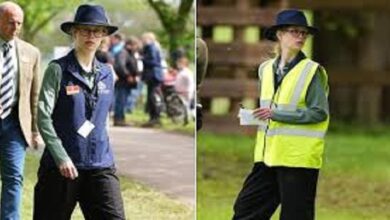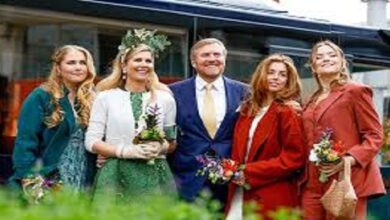Rodrigo Cuevas and the reinvention of Asturian folklore

Rodrigo Cuevas is a singer and folk agitator from Asturias, in the north west region of Spain.
He moves like a fish in water in traditional music and dance. But there is nothing traditional about his performances as LGBT rights at firmly at the centre of everything he does. Cuevas seeks to give a new meaning to folklore through social and political agitation. Euronews Culture caught up with the singer recently as he passed through Lyon on a Europe wide tour.
Euronews Culture: How do you keep the tradition alive?
R.C: It’s a stylistic thing. I like to take folklore and bring it into the present moment by giving it some more meaning. I change some lyrics, rhythms and melodies. I try to give the songs another meaning. Tradition is kept alive by using it. It’s like languages. I like to talk about issues that disturb me and move me. I like to convey this to the public.
Euronews : Tell us about your repertoire, what songs do you sing?
R.C: The repertoire is mainly part of traditional Asturian music, although I also include nearby territories, such as Galicia, León and Zamora. I even sing a song from Albacete. But above all I sing songs from the north-western area of Spain, which is called the archaizing quadrant, because it has in common an archaic form of folklore, in which there are no guitars, nor practically no harmony instruments. I think of it as something with continuity rather than a rupture, but it is true that sometimes the result seems more disruptive than I think.
R.C: I tell stories that were told to me, stories that happened to me, and stories that touch me in some way and I try to make them my own. Storytelling is a very magnetic thing. I really like the character of the storyteller.

Euronews : How do you integrate LGBT issues into your show?
R.C: Within traditional poetry, the LGBT issue is very distant, whenever it appears it is always in an anecdotal way and always appears as a mockery. There is a very broad and very macho repertoire. And sometimes we confront it, because you say to yourself: How is it possible to do an interpretation with a gender perspective and to confront such a homophobic and sexist repertoire? But I find it interesting because not all the repertoire is like that. Obviously there is another part of the repertoire that fits to express any kind of sexual interest, any kind of love and you can even find that part of the repertoire is feminist.
Euronews : What are some of your sources and influences?
R.C: I love Arca, even if it’s not reflected in my music. She is an artist I admire. I also like Mercedes Peón, a Galician artist I admire a lot. When I was a child, for example, I loved Lina Morgan. I was always fascinated by her way of performing, her connection with the audience and her improvisation.
Euronews : Your concert is a total spectacle. There’s music, dancing, photo projections… Tell us about Tropico de Covadonga?
R.C: I am accompanied by Mapi and Juanjo, two musicians who are also Asturian. We use in the scenography a lot of photographs from the Archive of the Museo del Pueblo de Asturies, in which we can appreciate subterfuge, alternative practices and a more libertine society at the beginning of the 20th century.




